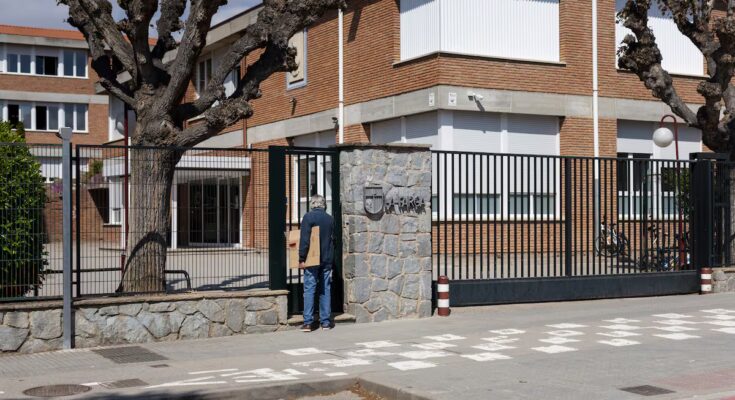What Opus Dei schools feared most is starting to happen: a trickle of families abandoning schools due to the centers’ impending privatization next year. In the latest school pre-registration, 159 families from La Vall and La Farga schools – two of the largest that separate boys and girls in classrooms – asked for a change of school, although only 112 got a place, in a public or private school.
In recent years, the Opus schools, which segregate by sex, have found themselves at the crossroads between giving up the differentiated model and mixing boys and girls, in exchange for maintaining the educational agreement – the Generalitat contributes more than 35 million every year to the dozen schools linked to the Prelature – or maintaining their model and losing public funding. State education law, Lomloe does not provide funding for schools that segregate by sex, and two schools have already lost their secondary school gig in 2022 for continuing to separate boys and girls. At the beginning of 2026, concerts for all educational levels will have to be renewed (the process repeats every six years in primary school and every four years in ESO), so the schools have done the math and those who deem it feasible – nine of them – have chosen to give up the public subsidy, which will make them private starting from the 2026-27 academic year.
In this new phase, many schools have tried to merge with another twin – a women’s center with another women’s center – to gain muscle, be more attractive to families and try to avoid one of the great risks of privatization: the flight of students, especially for economic reasons, due to the general increase in fees. Although the privatization has not yet taken place, its announcement has already raised concerns among some families and some have chosen to look for another centre.
According to data from the Department of Education obtained for transparency (requested in July and after a complaint to the Commission for guarantees of access to public information), last spring, during the official pre-registration process, 63 students from La Vall (located in Bellaterra and which educates girls) asked to change schools, although just over half of them did so: 38. The figures for its sister centre, La Farga (for boys and located in Sant Cugat del Vallès) are higher: 96 students requested transfer and 74 were successful. Sources close to the schools note these figures and assure that the number of students who have left the center is higher, since some families have chosen to send their children to a private school, so that they do not appear in the Department’s processes. The Institució Familiar, the managing body of these two schools, neither confirms nor denies the figures and simply guarantees that “the volume of withdrawals from this course is in line with recent years”, without specifying anything else.
It remains to be seen whether the flight of families will increase in the next academic year, when schools will already be private. From Institució they are calm: “We don’t think there will be a significant increase in victims, since in recent years we have worked on a strategic and efficiency plan to minimize the economic impact on families.”
The distrust of families towards privatization can already be seen in another element of pre-registration: in both centers applications have decreased between 10 and 14% and they have not filled all the places offered, while two years ago they had none. These are decreasing figures which were not part of the management’s plans, which was betting on increasing enrollments to be economically sustainable.
Another example of concern is that, following the announcement of the privatisation, a movement arose in the La Farga and La Vall schools promoted by a group of families who oppose this change and accuse the management of a “lack of transparency” in the intentions and plans to balance the accounts and compensate the eight million that both centers now receive from the Generalitat with the educational agreement.
New privatizations
In addition to La Farga and La Vall, in recent months the Canigó and Viaró schools in Sant Cugat, and Bell-lloc with Les Alzines in Girona have announced their merger – and their transition to private ownership. The latest to take the step are Xaloc (which educates boys) and Pineda (for girls) of L’Hospitalet de Llobregat, who on Thursday announced to families their “school re-foundation plan”, since the loss of public subsidy – more than seven million between the two centres, according to Education data – will mean a 180 degree turn in economic management.
Both schools, with 60 years of history and a total of 2,800 students, said in a joint statement that they are “committed to a differentiated model” and will apply for the concert during the renovation process that begins in December. But “given the possible scenario of non-renewal of the concert”, measures are being implemented to ensure that the centers “are sustainable and economically viable”.
Among the most relevant measures that will be adopted will be the merger of both schools into one to reduce expenses, so that the educational programs will be unified and there will be a single direction. Additionally, “tuition will be increased gradually through the 2030-31 academic year,” the schools announce. And to increase revenue, we also seek to expand the current professional training offering.



